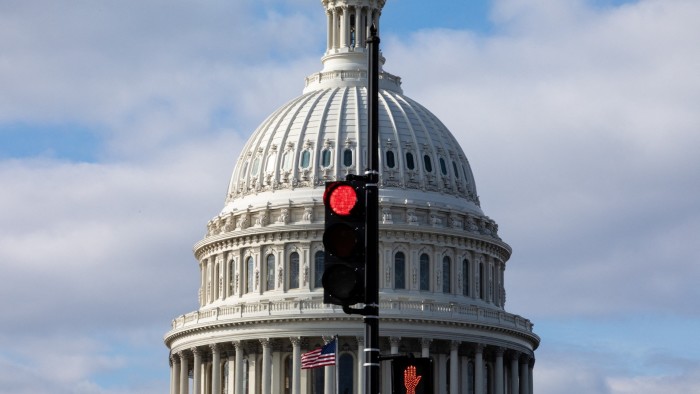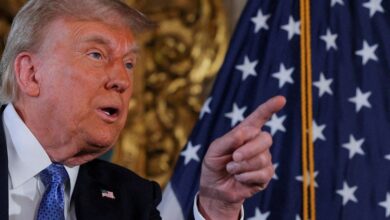US government shutdown looms after House rejects Donald Trump-backed funding bill

Unlock the White House Watch newsletter for free
Your guide to what the 2024 US election means for Washington and the world
The US Congress has to find a deal on Friday to keep the government open after the House of Representatives voted down the latest version of a funding bill despite support from Donald Trump.
The 174-235 vote late on Thursday tees up a race by House Republicans to approve a new bill before a Friday night deadline. The failed deal would have extended government spending to March 14, sent billions of dollars to communities hit by natural disasters and suspended limits on federal borrowing for two years — a crucial priority for the president-elect.
The scramble for a deal comes after an earlier bipartisan bill was torpedoed following criticism from Trump and his billionaire adviser Elon Musk, the Tesla chief.
After the vote, Trump reiterated his demand for a spending bill that would do away with the debt ceiling, which restricts how much the government can borrow.
“Congress must get rid of, or extend out to, perhaps, 2029, the ridiculous Debt Ceiling,” he wrote on his Truth Social platform, adding: “without this, we should never make a deal.”
The House and Senate will need to work quickly to approve a bill in order to get it to President Joe Biden in time to avoid a government shutdown, after lawmakers paused discussions on Thursday night.
“We will regroup and we will come up with another solution,” Republican Speaker Mike Johnson told reporters after the vote. “So stay tuned.”
Thursday’s bill fell far short of the two-thirds majority needed to pass. In a sign of the challenge for Johnson, 38 Republicans voted against the measure.
Trump had urged Republicans and Democrats to vote for the bill. “SUCCESS in Washington!” he posted on Truth Social.
Democrats attacked the proposal, with House Democratic leader Hakeem Jeffries calling it “not serious”.
“It’s laughable,” told reporters ahead of the vote. “Extreme Maga Republicans are driving us to a government shutdown.”
A shutdown would halt some federal programmes, while some workers would be sent home and pay would be suspended for some government employees, including military personnel.
Musk had first piled pressure on Johnson and Republicans in a series of social media posts on his X platform on Wednesday, criticising the initial bipartisan 1,500-page bill as “terrible” and bloated with unnecessary spending and other measures.
Trump then sent House Republicans scrambling when he came out against that bill, in large part because it did not also raise the government’s debt ceiling.
The first three-month stop-gap bill had been negotiated between Republican and Democratic congressional leaders. It would have maintained current levels of spending until March 14 and spent billions of dollars on farmers and disaster relief aid. By then, Republicans will have control of both Congress and the White House.
It also contained unrelated provisions, including a pay increase for members of Congress, restrictions on technology investment in China and an easier path for the Washington Commanders American football team to move its stadium from the state of Maryland to the city of Washington.
But the initial bill did not touch the debt limit, which was expected to expire in the first several months of Trump’s second term.
Trump called the bill a “Democrat trap” and threatened Republican members that he would field primary challengers against them in the next election if they voted to support a short-term spending measure without raising the debt ceiling.
“There won’t be anything approved unless the debt ceiling is done with,” Trump told ABC News. “If we don’t get it, then we’re going to have a shutdown, but it’ll be a Biden shutdown, because shutdowns only inure to the person who’s president.”
The legislative crisis has also put Johnson’s leadership in doubt, with far-right members such as Marjorie Taylor Greene musing that Musk could replace him as Speaker.
The debt ceiling is a perennial problem for lawmakers, who suspended the cap on borrowing until January 1 in a deal reached last year.
To borrow beyond that limit, the Treasury department can use what it calls “extraordinary measures” to cover new expenditures without breaching the cap.
This can buy the government time before having to worry about a potential default — a disastrous outcome for the world’s largest economy and most important financial system.






